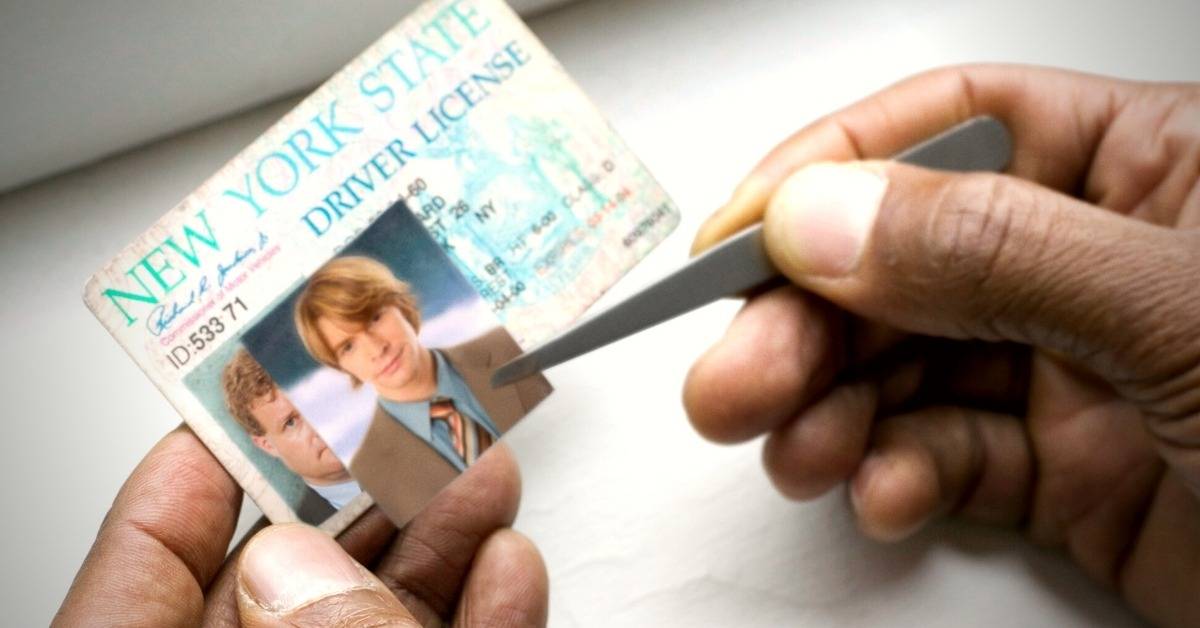Fraudulent identification commonly referred to as fake IDs are incredibly common all over America, Texas included. Even though many minors believe that they are merely accessing services otherwise limited to lawful adults, the truth is that getting busted with a fake ID can lead to serious penalties that can have long-term impact on a young person’s future.
Even though the crime is usually a misdemeanor, a conviction will remain on the person’s permanent record and could lead to possible issues being admitted to certain colleges or accepted into some programs. This all is not to mention the possible professional consequences that could make it more difficult to land a job.
Use or Possession of Fake ID Defense Lawyer in Denton, Frisco, Lewisville, Flower Mound, TX
Were you arrested for using or possessing a fake ID in the greater Denton area? Make sure that you do not wait another moment to get yourself legal representation.
The Law Offices of Richard C. McConathy will be able to work to help you achieve an outcome to your case that limits the amount of long-term damage. You can have us review your case and help you understand what you can do when you call (940) 222-8004 or contact us online to schedule a free consultation.
Use or Possession of Fake ID Charges in Denton
Texas Penal Code § 32.51(a)(1) defines the term “identifying information” to mean information that alone or in conjunction with other information identifies a person, including a person’s:
- name and date of birth;
- unique biometric data, including the person’s fingerprint, voice print, or retina or iris image;
- unique electronic identification number, address, routing code, or financial institution account number;
- telecommunication identifying information or access device; and
- social security number or another government-issued identification number.
Texas Penal Code § 32.51(a)(2) defines the term “telecommunication access device” to mean “a card, plate, code, account number, personal identification number, electronic serial number, mobile identification number, or other telecommunications service, equipment, or instrument identifier or means of account access that alone or in conjunction with another telecommunication access device may be used to:
- obtain money, goods, services, or another thing of value; or
- initiate a transfer of funds other than a transfer originated solely by paper instrument.”

Texas Penal Code § 32.51(b) prohibits a person from fraudulently using or possessing identifying information with the intent to harm or defraud another. Proof of the offense requires that the person obtains, possesses, transfers, or uses an item of:
- identifying information of another person without the other person’s consent;
- information concerning a deceased natural person, including a stillborn infant or fetus, that would be identifying information of that person were that person alive if the item of information is obtained, possessed, transferred, or used without legal authorization; or
- identifying information of a child younger than 18 years of age.
There are a couple of statutes in the Texas legislature that address the use of Fake IDs. Juveniles are known to use Fake IDs for different purposes including but not limited to:
- Entering a bar, club, or any space specified for individuals 21 or older only
- Purchasing or soliciting alcohol from a liquor store, bar, or any vendor whose alcohol sale is specified for individuals 21 or older only
- Reserving, purchasing, or soliciting a service that is reserved for individuals 21 or older only
Alcoholic Beverage Code § 106.07 addresses the use of misrepresentation of age to purchase alcohol. You cannot say you are 21 years or older nor present a document that falsely states that you’re 21 years or older. Any offense like this is classified as a Class C misdemeanor.
As far as any use of falsifying Identification documents used for other purposes besides the purchase or possession of alcohol, Texas Transportation Code § 521.451 states a person may not:
- Possess a driver’s license or document that he or she knows is fake or has been tampered with.
- Let another person borrow their license or document with his or her permission
- Possess or present a driver’s license or certificate not issued to himself or herself
This offense is classified as a Class A misdemeanor. If the person used the fake ID specifically for the purchase or use of alcohol, then they will most likely be prosecuted only under the alcoholic beverage code.
There are two other statutes under Texas law that address the fraudulent use of fake IDs. However, each offense is characterized by the situation involving the fake IDs and the intentions behind them.
Texas Penal Code § 37.10 involves tempering with a real government-issued ID and changing specific information provided inside the ID, such as the date of birth. This offense is also classified as a Class A misdemeanor.
Furthermore, Texas Penal Code § 32.51 involves the use of a real person’s identifying information. A real person can be someone alive or deceased. For the purpose of the statute, this code specifies that the other person whose information is being used is not aware of it.
The code also addresses an intent to harm or defraud as a big part of this offense. Even if a minor’s intentions don’t involve defrauding someone else, the code considers the nature of the action when an individual possesses three or more individuals’ identifying information without the person’s knowledge or permission, including that of deceased people. Depending on the number of people’s identifying documents in the individuals’ possession this offense can be categorized from a state jail felony to a first-degree felony.
The penalties for the fraudulent use or possession of identifying information include:
- if the number of items used are less than 5 then it is a state jail felony;
- if the number of items used are five or more but less than 10 then it is a third-degree felony;
- if the number of items used are 10 or more but less than 50 then it is a second-degree felony; or
- if the number of items used are 50 or more than it is a first-degree felony.
Under Texas Penal Code § 32.51(b-1), the statute states that the person is presumed to have the intent to harm or defraud another if the person possesses:
- the identifying information of three or more other persons;
- the information described by Subsection (b)(2) concerning three or more deceased persons; or
- information described by Subdivision (1) or (2) concerning three or more persons or deceased persons.
The presumption does not apply “to a business or other commercial entity or a government agency that is engaged in a business activity or governmental function that does not violate a penal law of this state.”
Use or Possession of Fake ID Penalties in Texas
If you use a fake ID to purchase or obtain alcohol your Class C misdemeanor offense is punishable as stated in Section 106.071 by the following:
- Alcohol awareness program
- drug education program
- Drug and alcohol driving awareness program
The purpose of these programs is to offer some type of rehabilitation feature for the offender. If no programs are available near the minor’s residence area, then his or her community service assignment can involve a rehabilitation feature as well.
Community service assignments are as follows:
- 1st offense — 8-12 hours
- 2nd offense — 20-40 hours
The offense can also cause the minor’s driver’s license or permit and his application for one to become suspended according to the following:
- 1st offense — 30 days
- 2nd offense — 60 days
- 3rd offense — 180 days
Additionally, the minor who is not a child (10-16 years old) who is convicted twice before with the same offense is subject to the following.
- Fine of up to $2,000
- Confinement in jail up to 180 days
Both the offense of a minor in possession of alcohol and the use of a fake ID to obtain alcohol fall under the same category, so a court can always cite that as two separate convictions under the same offense.
Because the use of a fake ID by a minor for purposes other than possession of alcohol is not specified under any Texas statute, a child or minor ages (10-16) who possesses a fake ID is most likely to be tried under the juvenile court procedure. Though they can be subject to the same penalties stated above aside from incarceration, the juvenile court has a different role. They are keener on the prevention and rehabilitation of the offender. Minors can be offered deferred prosecution or deferred adjunction and are more likely to be punished by probation or community service assignments. The juvenile court process also involves a bigger role for parents. The juvenile’s parents can be subject to any fine as a result of the offense. The parents can also be required to attend the same juvenile program as their son or daughter.
In any case, if the severity of the offense is big enough, a minor can always be sent to a juvenile detention center or even tried as an adult if the court demands it. The juvenile decides that based on the way the court views the minor as well as the nature of his crime. This can be done in the form of a transfer. If the juvenile’s fake ID case gets transferred to an adult court, the penalties are subject to the Texas penal code. In that case, a class C misdemeanor’s maximum punishment is subject to a $500 fine, while a first-degree felony is subject to a minimum of 5 years of incarceration. All penalties are ultimately subject to the court handling the offense.
Under Texas Penal Code § 32.51(c-1), the penalties for the offense are increased to the next higher category of offense if it is shown on the trial of the offense that:
- the offense was committed against an elderly individual as defined by Section 22.04; or
- the alleged offender fraudulently used identifying information with the intent to facilitate an offense under Article 62.102, Code of Criminal Procedure.
Use or Possession of Fake ID Resources in Denton County
What is Operation Fake Out? — The Texas Alcoholic Beverage Commission implemented a program called Operation Fake Out in order to reduce the number of fake IDs roaming the state. Retailers work with the state and are taught how to distinguish the real from the fake.
Fake IDs Study — The journal discusses a study about the broad effect of fake IDs. Such effects include the big access fake IDs give to the illegal use of alcohol. The study talks about how such use has an impact on our overall society.
Texas Attorney General on Identity Theft — Visit the website for the Attorney General of Texas to find out more about fighting and preventing identity theft. The website provides information on actions you should take if you become a victim of identity theft including an Identity Theft Kit to put security alerts and a freeze on your credit report.
Texas Fights ID Theft — Find information on help for the more than 25,000 Texans who report being victims of identity theft. Learn more about stopping ongoing damage. and fill out an ID theft affidavit.
Find A Denton County Defense Attorney for Use or Possession of Fake ID Charges | Law Offices of Richard C. McConathy
Were you arrested for using or possessing a fake ID in Denton or a surrounding area of Denton County? Do not wait to get yourself legal help.
The Law Offices of Richard C. McConathy knows how these kinds of charges can affect young people and works to make sure they are able to avoid serious consequences. Let us have a look at your case when you call (940) 222-8004 or contact us online to receive a free consultation.


